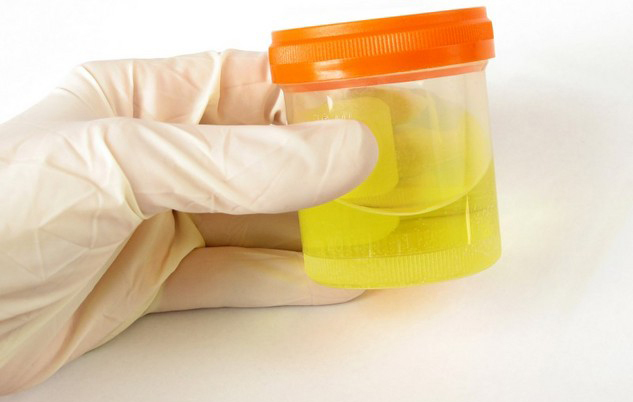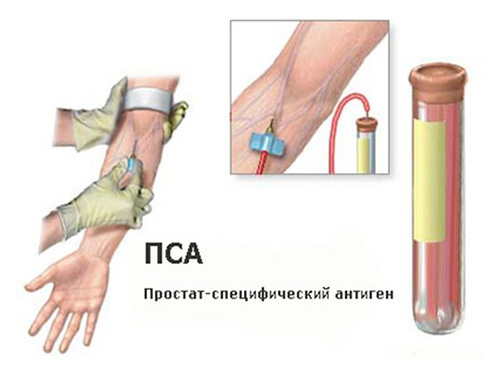Medicines for the treatment of cystitis
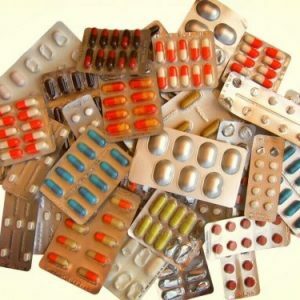 Cystitis is a problem that every woman has experienced at least once in her life.Of course, this disease can be a man, but according to statistics this happens extremely rarely.Many women with the appearance of symptoms of the inflammatory process in the walls of the bladder begin to independently cure themselves, selecting antibacterial agents.Indeed, most women claim that after taking certain medications the disease disappears, they feel completely healthy.The problem lies in the fact that some of the known antibacterial drugs have long been ineffective in the fight against cystitis - the symptoms disappear, but the disease itself simply passes into the chronic stage of the flow and necessarily manifests itself under favorable conditions.
Cystitis is a problem that every woman has experienced at least once in her life.Of course, this disease can be a man, but according to statistics this happens extremely rarely.Many women with the appearance of symptoms of the inflammatory process in the walls of the bladder begin to independently cure themselves, selecting antibacterial agents.Indeed, most women claim that after taking certain medications the disease disappears, they feel completely healthy.The problem lies in the fact that some of the known antibacterial drugs have long been ineffective in the fight against cystitis - the symptoms disappear, but the disease itself simply passes into the chronic stage of the flow and necessarily manifests itself under favorable conditions.
This article highlights a part of medicines, which official medicine is actively used to treat cystitis.But this does not mean that you can and should do self-medication!The diagnosis should be made only by a specialist, and specific appointments should be conducted by a doctor, and not by a person far from medicine.
Table of contents: General principles of treatment of cystitis Antibiotics for cystitis Fosfomycin for cystitis Beta-lactams - drugs for the treatment of cystitis in children and pregnant women Nitrofurans FluoroquinolonesGeneral principles of cystitis
In pharmacies, you can find a lot of medicines that are called "affordableAnd have long established themselves ", but in fact they are already ineffective in the treatment of cystitis.In general, the regulations of medicines used in the treatment of cystitis are updated every year - agree, the ignorant person simply can not trace all the changes.The most reasonable is to get recommendations from specialists.
If a person develops acute cystitis, then urologists generally do not recommend taking any antibacterial drugs in the first day of the disease.It is much more effective to consume a large amount of liquid( give preference to cranberry and / or cranberry fruit), to comply with bed rest.From drugs in the first day of the course of acute cystitis, it is worth taking anti-inflammatory drugs( for example, Diclofenac or Ibuprofen) and antispasmodics that will relieve pain( for example, No-shpa or Baralgin).If there is no improvement in the state of health during the first day, antibacterial drugs are prescribed - they will influence the cause of the inflammatory process, which causes a fairly rapid recovery.
Note: before you refuse to take antibacterial drugs in the first day of the course of acute cystitis, you need to make sure of the accuracy of the diagnosis.That is, the patient should have an uncomplicated infection that does not go to pyelonephritis - cystitis happened for the first time in life, there are no blood elements in the urine, there are no stones and a benign / malignant tumor in the urine, the patient does not have autoimmune pathologies.
If the patient's cystitis occurs in a complicated form, then treatment is prescribed only after conducting a laboratory urine test for individual sensitivity to antibiotics.
Since cystitis worries the patient with severe pain in the lower abdomen and in the urethra during urination, doctors prescribe and symptomatic therapy - it is just about taking antispasmodics.
If the cystitis is already taking place in chronic form, the patient should regularly carry out the prevention of relapses.
Antibiotics for cystitis
The list of antibacterial drugs that are used to treat cystitis is wide enough.The problem is that many of them use uncontrolled, without exact dosages and prescriptions, which led to the stability of causative agents of cystitis to some antibacterial drugs.For example, in the disease under consideration, official medicine no longer appoints Amoxicillin, Biseptol, Ampicillin, 5-NOC. Modern medicine recommends the following preparations for the treatment of acute uncomplicated cystitis:
-
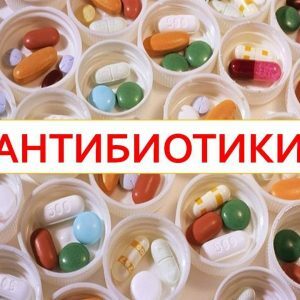 Nitrofungans, fluoroquinolones - these groups of antibacterial drugs are chosen for adult patients.An alternative is the administration of fosfomycin trometamol once.
Nitrofungans, fluoroquinolones - these groups of antibacterial drugs are chosen for adult patients.An alternative is the administration of fosfomycin trometamol once. - For children and pregnant women, Amoxicillin clavulanate and cephalosporins of 2-3 generations are prescribed for this disease. These drugs do not have a powerful toxic effect and are characterized by a minimum number of side effects.
- Children over 5 years of age and pregnant / lactating women may receive Fosfomycin trometamol.
Fosfomycin( Monural) with cystitis
Monural( this is Fosfomycin trometamol) is a medicinal preparation that is used to treat cystitis by almost all doctors. The advantages of this drug are:
- causative agents of cystitis have a high sensitivity to the drug and a low level of resistance - this provides excellent therapy results;
- the drug creates effective concentrations in the urine - one dosage of the presented drug acts( kills pathogenic bacteria) for 80 hours.This makes it possible to use the treatment scheme in the form of a single dose of three grams of Monural;
- remedy is safe and authorized for use by pregnant and lactating women for any concomitant diseases( except for kidney failure only).
Fosfomycin has one feature - it acts slowly enough for 2-3 days, so after a single dose of this remedy, you should not wait for the result on the second day.
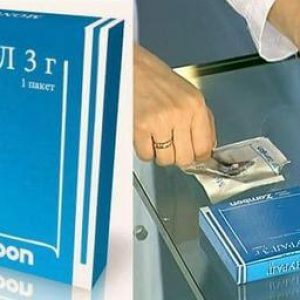 Note: Monural is strictly contraindicated for use by children under 5 years of age, elderly people over 75 years of age and with individual intolerance to this medication.
Note: Monural is strictly contraindicated for use by children under 5 years of age, elderly people over 75 years of age and with individual intolerance to this medication.
Nausea, vomiting, and headache may occur with this medication. These side effects occur in 6% of patients taking Monural.
Recently, doctors have been practicing Monural every 24 hours, that is, it turns out that cystitis is treated twice with the drug at a dosage of 3 grams per reception.
Beta-lactams - drugs for cystitis treatment for children and pregnant women
To group of antibacterial drugs beta-lactams are cephalosporins and penicillins - they have their advantages and some disadvantages in the treatment of cystitis.Among the advantages can be identified and most importantly - safety, which is due to the ability of the active substance of drugs to rupture the cell wall of the pathogenic bacterium and at the same time remain absolutely harmless to the human body as a whole.To undesirable side effects with the use of these drugs is an allergic reaction, but if there is none, then cephalosporins and penicillins can be fully used in the treatment of cystitis in pregnant women and children.
Amoxicillin clavulanate can be considered as the first, most commonly used, cystitis remedy with the necessary safety requirements.Yes, it can have some irritating effect on the intestines, but it can be reduced if you take the medicine at the beginning of food intake or using additional probiotics.
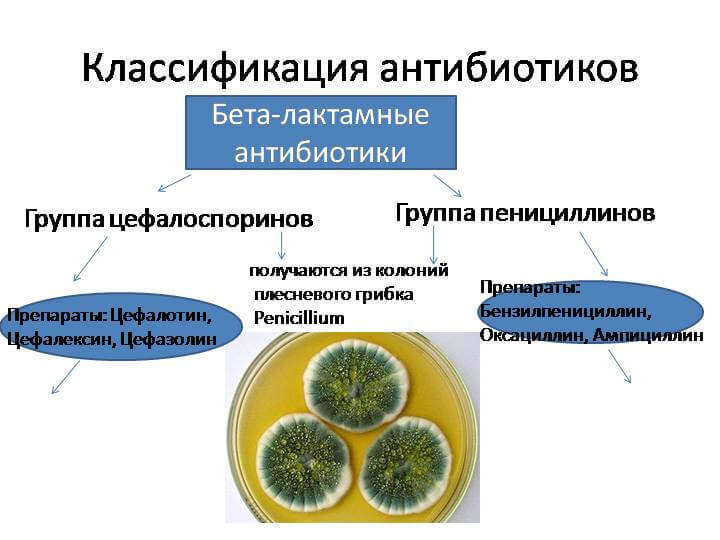
In the standard of cystitis therapy, cephalosporin is present in the third generation - Cefixim( Ceforal Solutab, Supraks Solutab, Panzef).This drug is effective for short courses of treatment, but does not affect all pathogens.The drug is given to adults at a dosage of 400 mg once a day or 200 mg twice a day.The duration of treatment with cephalosporins of the 3rd generation is no more than 5 days.
Nitrofurans
These drugs belong to the group of antimicrobials - they have been used for a long time in the treatment of the inflammatory process in the walls of the bladder.They have a bactericidal effect, are characterized by a low level of accustomed pathogens pathogens to the active substance.It is worth knowing that nitrofurans can cause side effects - nausea and vomiting, short-term abdominal pain, increased drowsiness, weakness and dizziness.
Note: the considered group of medicines is categorically contraindicated for use in heart failure, renal and hepatic insufficiency.
Representatives of the group of nitrofurans:
- Furadonin - available in the form of tablets, with cystitis administered at a dosage of 100-150 mg three to four times a day;
- Furazidine - perfectly tolerated by patients, appointed at a dosage of 100 mg three times a day, duration of admission - at least 5 days;
- Furazolidone - can be used to treat cystitis, but it does not create high effective concentrations in the urine, therefore it is ineffective.
Fluoroquinolones
This group of drugs is very effective in the treatment of inflammation in the walls of the bladder, but there is one feature - fluoroquinolones are very toxic, so they have a lot of side effects and contraindications for admission.
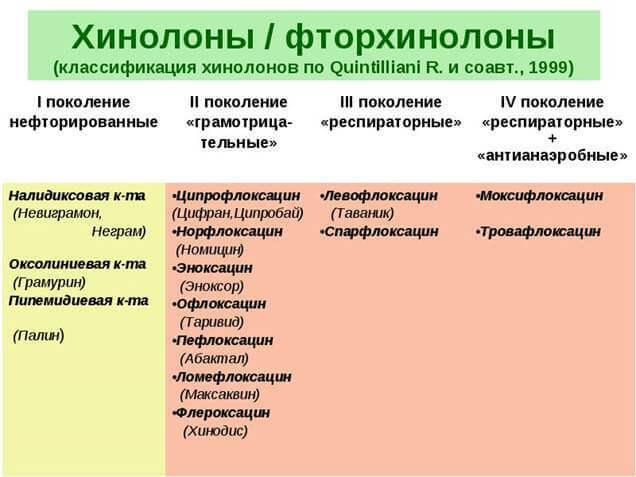
Fluoroquinolones can not be categorically used for the treatment of cystitis in patients under the age of 18, pregnant and lactating women, and those with a tendency to seizure or epilepsy. Adverse effects when taking this group of drugs:
- pain in the muscles and joints;
- hepatic dysfunction;
- nausea and vomiting without eating;
- abdominal pain;
- dizziness;
- drowsiness;
- cardiac rhythm disorder;
- photodermatitis.
Note: doctors themselves still can not classify fluoroquinolones to any specific group of drugs used to treat cystitis.Some experts consider them first in therapy, others - just a backup option.Therefore, such medicines can be prescribed only by the attending physician.
The group of drugs used for the treatment of cystitis includes Norfloxacin and Ofloxacin.The first indicated drug is taken at a dosage of 400 mg twice a day for 3 days, and the second drug - 200 mg twice a day and also for 3 days.
Doctors are well aware that effective antibiotics in the treatment of cystitis are only antibacterial, since anti-inflammatory, pain relievers eliminate only the symptoms, but not the cause of the inflammatory process.The choice of antibiotics is great, so you should consult a specialist - only he, taking into account the individual characteristics of a particular patient, will be able to choose an effective and safe drug, and if necessary, adjust the therapy scheme.
Tsygankova Yana Aleksandrovna, medical reviewer, therapeutist of the highest qualification category.


